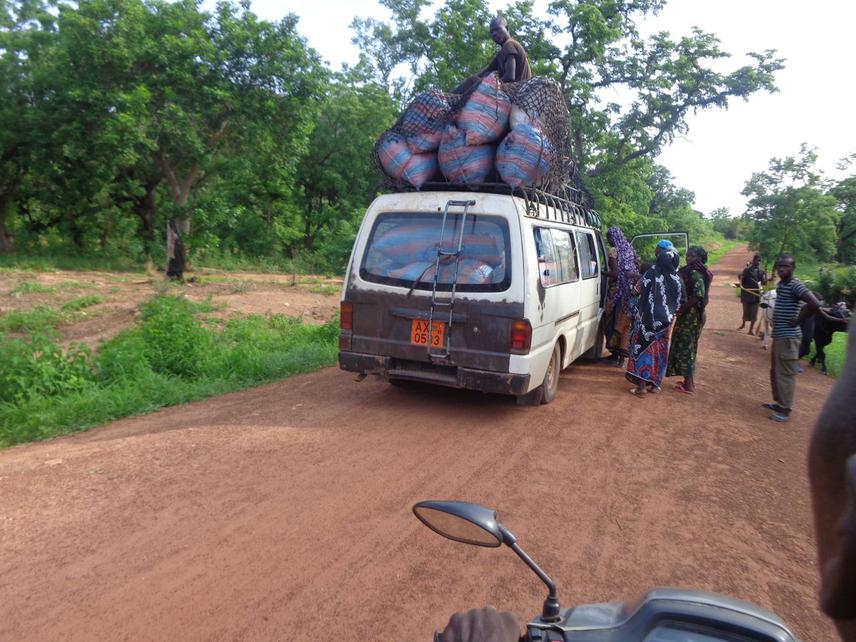Fifanou G. Vodouhe
Other projects
14 Oct 2014
Promoting Value Chains for Non-Timber Forest Products to Support Biodiversity Conservation in Benin (West Africa)
This project will access and compare benefit from three land use options in a view to help people to make choice which can contribute to improve their livelihoods and support biodiversity conservation.

Wholesalers transporting NTFPs seeds after buying.
Since the Earth Summit in 1992, many efforts were undertaken to conserve biodiversity through forest preservation. In Benin, this results in the better control of a lot of protected areas like Pendjari Biosphere Reserve (PBR). However, despite many efforts undertaken to conserve this reserve, recent reports indicate that populations are still motivated to continuous to log or convert reserve land to large-scale agriculture. This failure may be explained partly by the fact that the conservation issues have not only ecological considerations but also by economical bottlenecks such as the demand for firewood or agricultural land. This project seeks to:
(1) Access Non-Timber Forest Products (NTFP) economical values;
(2) Analyse firewood harvesting economic importance;
(3) Evaluate cotton production economic importance;
(4) Compare these three land use options for decision making by local people.
The premise is that the choice of sustainable harvest of NTFPs option can permit them to improve their livelihoods and in the same time to contribute to sustainable use of natural resources and consequently to support the biodiversity conservation.
Economic valuation of natural resources especially in the case of resources such as forests, which have alternative land use options, is very important to help people to make informed choices. In fact, for biodiversity conservation, it is recommended that local people be involved for long term benefits. This study set up a knowledge basis for decision making about forest management. Through a comparison model between sustainable harvest of NTFP, firewood collection and cotton production farmers and villages’ dwellers could knowingly make a choice that sustain their livelihoods and in the other hand contribute to biodiversity conservation.
The results of these studies will be a powerful tool for protected area managers and other Non Governmental Organization strongly involved into conservation of nature to raise people awareness about the importance of their activities.